If you are a new parent, you may be looking out for things that could harm your little one. You may be worried about things like sharp corners or keeping the house clean to prevent illness or injury to your loved one.
But one thing people may not consider is finding the ideal humidity level in a baby’s room to keep them in better health. A high humidity level in the room can cause certain problems to the baby, like respiratory issues and skin problems.
So what should the humidity be in a baby’s room? According to the EPA, the ideal humidity range inside the house should be between 30% to 60%. Keeping the humidity below 60% will prevent allergen growth. Keeping the optimal humidity level in the baby room will help keep your baby healthy and comfortable.
In this article, let us further look at how humidity affects babies and ways to maintain such conditions.
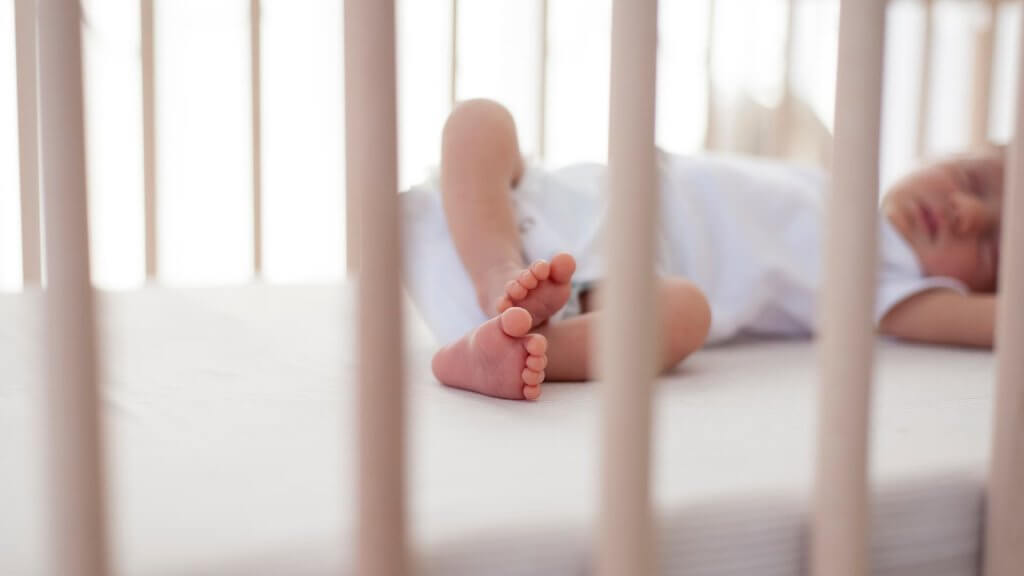
How Humidity Affects Babies
Humidity affects children more than it does adults. Both high and low humidity levels can be bad for babies. It can also impact their sleep cycles, and as we all know, babies need to sleep for close to 18 hours a day.
Humidity also impacts how we ‘feel’ about temperature. If the temperature is too low, you might feel colder, and if it is high, you might feel warmer than it actually is. The same goes for our babies.
An issue related to low humidity is that it makes the skin dry. It can also make your baby’s nasal passage dry, causing skin irritation and cracked lips. A high level of humidity can also lead to the development of molds and allergens, posing certain health risks for your little one.
While people advise you to keep the baby’s room temperature between 65°F to 72°F, it is important to look at the humidity level as well.
Why Balanced Humidity Is Good for Newborn Health
Keeping a balanced humidity level in the baby’s room is essential to keep your baby comfortable and healthy. While raising your little one, you need to look at many things, from your baby’s food and sleep to their overall health. A high or low humidity level also affects your newborn’s health.
In winters, dry air with low moisture makes the nasal passage dry out quickly. And newborns are more susceptible to congestion and blocked noses. Moreover, viruses and bacteria survive better in cold and dry air rather than in humid air.
This makes the baby more prone to colds, coughs, and flu during the winters. Since the air passage in newborns is much smaller than in adults, dry winter air can be a particular problem.
Having a balanced humidity level is good for your newborn’s overall health and wellness. For this, you can use a humidifier to maintain your home’s ideal humidity.
The Best Humidity Levels for Babies
So what is the best humidity level for babies? The EPA recommends keeping the humidity level in the baby’s room between 30% to 60%. Keeping it below 60% will reduce the development of molds and allergens that can cause health issues and allergic reactions in the baby.
If you are looking for the overall comfort and health of the whole family, you need to maintain the humidity level of the entire house.
To maintain a proper humidity level for your baby, you can look at their comfort and how they are feeling at a certain level. If your baby is sweaty and their skin looks red, they are probably feeling very hot. So you need to regulate the humidity level to suit your baby’s comfort.
How to Monitor Humidity Levels in Your Nursery
To find out the humidity level in your nursery, you may want to invest in a hygrometer. A hygrometer is a device used to measure the temperature and humidity level of the surrounding space.
If the humidity level is very high in your nursery, you can consider buying a dehumidifier or running your air conditioner. Using any of these devices will help lower the humidity level and clear out dust particles and molds.
Or, if your baby’s room has dry winter air, you can consider using a humidifier to increase the room’s humidity level and make a more comfortable sleeping environment for your little one.
Should You Have a Humidifier in Your Baby’s Room?
If there is dry winter air inside your house, you may need a humidifier. Babies are very much susceptible to cold, cough, and flu, and they can easily catch infections during winters.
A humidifier increases the humidity level of the surrounding space and adds moisture, thus creating a more optimal sleeping environment for your baby.
If your baby’s nose is blocked and they have a scratchy throat, they may have difficulty sleeping. A humidifier helps ease such symptoms and lets your baby have a good and comfortable sleep.
Tips For Using a Humidifier for Your Baby
There are a lot of humidifiers available for your baby’s room. Let us look at a few tips below to help you choose what is best for your baby and you.
Humidifier Types
There are different types of humidifiers available in the market. Among all the models, ultrasonic devices are usually considered the most energy-efficient ones.
You can customize the settings and create a comfortable sleeping environment for your baby with them. They are also easy to use and operate quietly so your little one can sleep peacefully.
Maintenance
When employing a humidifier, know that you will need to maintain it properly. Using a humidifier regularly emits moisture that can cause molds to develop over time.
So to prevent your baby from breathing such things, you need to clean the humidifier parts regularly. Make sure to refill the water tank in the humidifier every day.
Make Sure to Place the Humidifier at a Safe Place
It is essential to place the humidifier in a safe place. Place the humidifier at least 6 feet away from your baby’s bed.
You need to keep a distance between your baby and the mist that the humidifier emits. Keeping it at a distance will help protect your child from respiratory problems and discomfort.
Also, read Best Humidifiers for Hard Water.
Frequently Asked Questions
What Is a Good Room Humidity For a Baby?
The ideal humidity level for a baby is 30% to 60%. You can use a home humidification system to maintain the humidity level for the entire house or just use a small humidifier for your baby’s room.
How Can I Reduce The Humidity In My Baby’s Room Without A Humidifier?
There are different ways to reduce humidity. You can use an air conditioning unit or a fan and even open the room’s windows for some time. Placing some in-house plants also helps absorb the humidity inside the room.
Wrapping Up
The ideal humidity level for a baby room is between 30% to 60%. You can maintain the humidity level by using a humidifier and creating a more comfortable living and sleeping environment for your baby.
I hope you found this article helpful and that it can guide you to create a safer and more comfortable environment for you and your baby.
Related articles:
Why Is My Room So Dusty?
Do Humidifiers Help With Snoring?


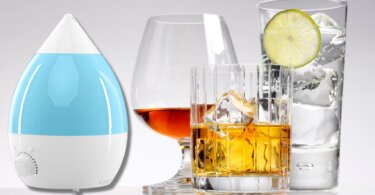
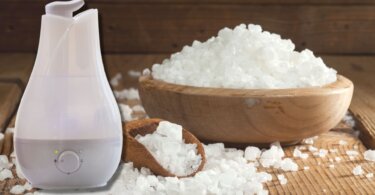
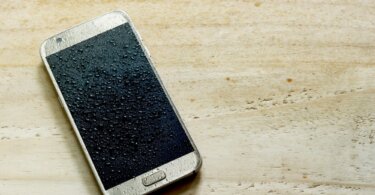
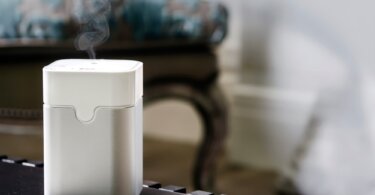
Leave a Comment